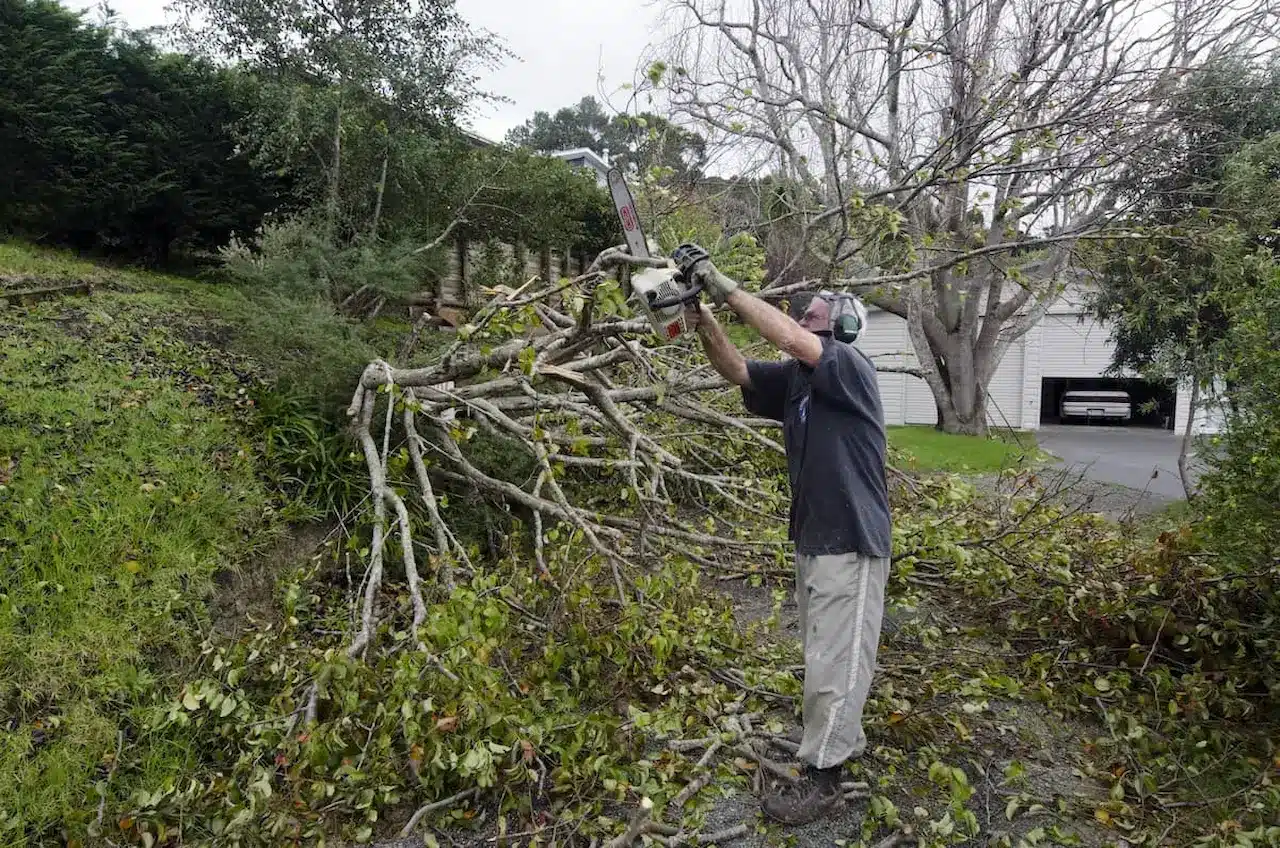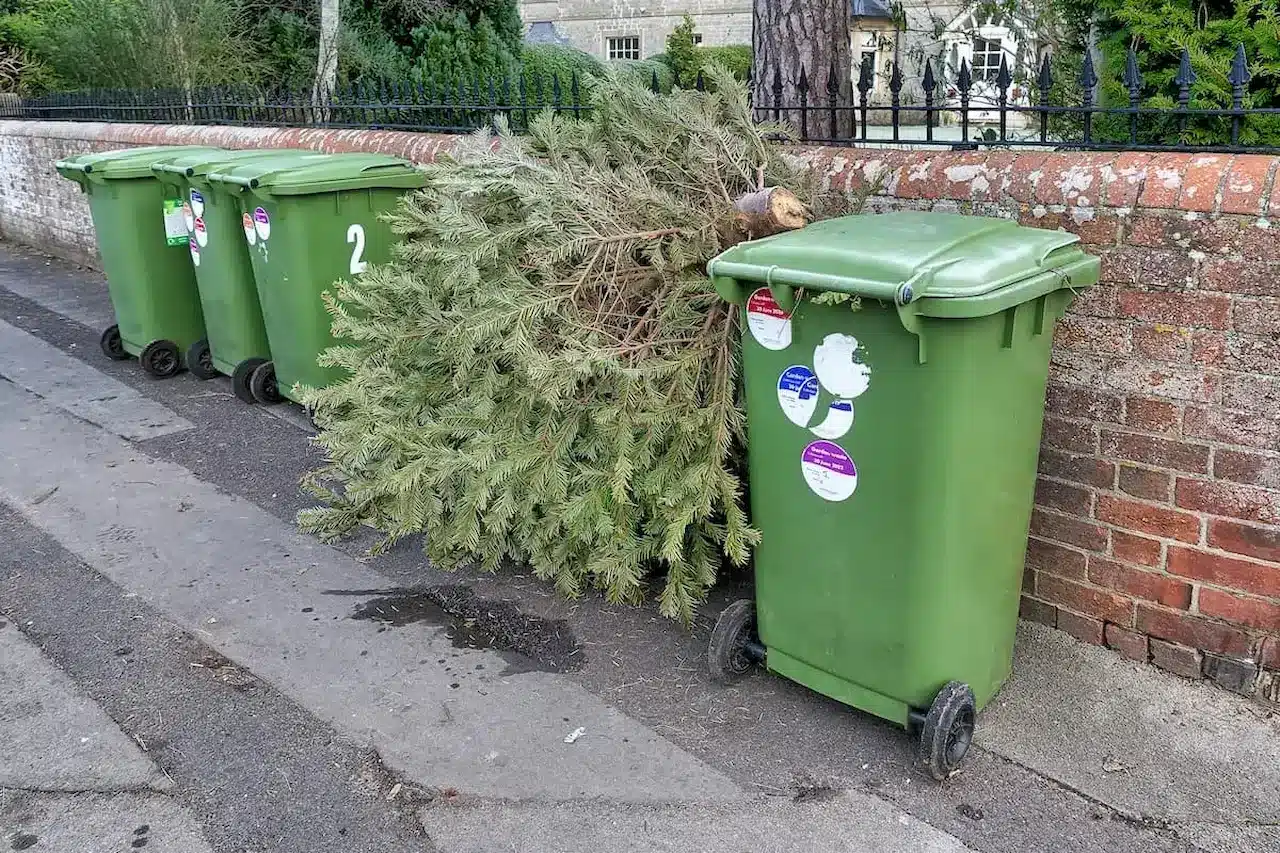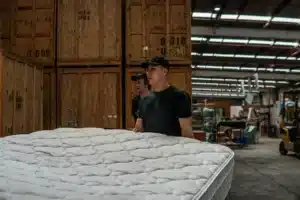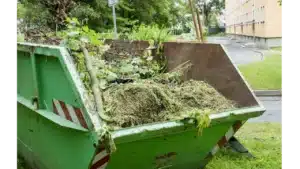Green waste management involves the proper handling of organic waste materials such as leaves, grass clippings, and other plant matter that have been produced by human activity such as mowing and trimming. In Australia, the effective management of green waste is a critical aspect of environmental sustainability. Processing this biodegradable waste separately from general household waste can lead to significant environmental benefits, including the reduction of methane emissions from landfills and the conservation of natural resources.
Recycling and collection services for garden waste are available to help mitigate the impact of climate change by diverting this kind of waste from landfills. Through composting and recycling, green waste can be transformed into valuable compost and mulches for agricultural and landscaping uses, illustrating a practical approach to waste reduction.
Government guidelines and local waste management practices may vary, which is why residents need to be aware of the correct disposal methods and collection services available for their green waste. Green-lid wheelie bins commonly used for organic waste encourage householders to separate their garden waste from other refuse. This green waste is then collected and processed, which can significantly decrease the volume of waste sent to landfill, making green waste management an integral part of the move towards sustainable living in Australia.
Table of Contents
Toggle
What Is Green Waste?
Green waste encompasses biodegradable matter naturally generated from gardens, parks, and the maintenance of landscaped areas. This type of waste includes a variety of organic materials such as:
- Grass Clippings: Leftover grass remnants from lawn mowing.
- Tree Cuttings/Branches/Shrubs: Trimmings from routine tree and shrub pruning.
- Garden Bed Materials: Spent flora, old mulch, and other organic matter from garden beds.
- Gardening Waste: General refuse from garden upkeep, including weeds and dead plants.
These materials are distinguishable from other types of waste due to their organic origin and potential for composting. Unlike general rubbish, green waste can be recycled into beneficial products like compost or mulch, contributing to soil health and plant growth when reprocessed correctly.
Managing green waste effectively helps to reduce landfill usage, cut emissions from decomposition, and support sustainable horticultural practices. Proper separation and disposal are key aspects, as mixed waste can complicate the recycling processes. This not only aids in the conservation of natural resources but also reinforces a cycle of regenerative practices within the community.
Green Waste Removal
Effective green waste removal is a crucial aspect of managing organic waste, which includes Grass Clippings, Tree Cuttings/Branches/Shrubs, and Garden Bed Materials. Green waste, if not properly managed, can contribute to environmental problems such as methane emissions.
Acceptable Green Waste Types:
- Grass Clippings: Must be free of inorganic materials.
- Branches and Shrubs: Typically, these are limited to a certain size for curbside collection.
- Garden Bed Materials: Comprised of soil and organic matter.
Proper Segregation:
- Organic matter must be separated from inorganic waste.
- Residents must follow local council guidelines for green waste bins (often with green lids).
Processing Green Waste:
- Collection: Curbside green waste collection services.
- Composting: Converts waste into nutrient-rich compost.
- Donation: High-quality compost may be offered to local farms or community gardens.
By using green waste services, individuals contribute to reducing greenhouse gas emissions and support soil enrichment programmes. Households need to familiarise themselves with local services for the disposal of their gardening waste, to maintain a clean and healthy environment.
Fundamentals of Green Waste Management
Green waste management is a structured approach to handling the biodegradable waste from gardens and parks, such as leaves, grass, and branches.
Goals:
- Conservation: To reduce natural resource consumption by recycling organic materials.
- Water preservation: Composting green waste can decrease water use in landscapes.
- Toxicity reduction: To avoid the accumulation of harmful substances by proper disposal methods.
Methods of Disposal:
- Composting: Accelerating the natural decay process, creating a nutrient-rich additive for soil.
- Mulching: A technique of covering the soil with organic materials to enrich and protect it.
- Recycling: Processing and repurposing biological waste into new products such as biofuel.
Recycling Services: To facilitate proper disposal, residents can use a green waste collection service, where collected waste is composted or recycled offsite.
Best Practices:
- Contamination avoidance: Ensuring only green waste is placed in recycling bins, excluding plastics, treated timber, and other non-organic materials.
- Education: Involves informing the community about responsible waste management practices.
Green Garbage Bin and a Cut Tree
Regulations and Incentives: Australian policies encourage green waste recycling, often coupled with financial incentives for services that support these practices.
Green waste management in Australia involves a combination of strategies designed to transform garden and landscape waste into valuable resources while aligning with ecological goals.
Methods of Green Waste Processing
Effective management of green waste involves several processing methods aimed at reducing its impact on the environment and repurposing organic materials.
Composting
Composting is a biological process that converts organic materials into a soil conditioner known as compost. This process entails the breakdown of green waste—like garden refuse, grass clippings, and leaves—by microorganisms under controlled aerobic conditions. The key steps are:
- Collecting green waste and providing suitable conditions for microbial activity.
- Regularly turning the pile to maintain oxygen levels and encourage even decomposition.
Benefits:
- Enriches soil, helping to retain moisture and suppress plant diseases.
- Reduces the need for chemical fertilisers, promoting a natural alternative for gardeners and farmers.
Mulching
Mulching involves spreading organic materials, such as bark, wood chips, or shredded leaves, over soil surfaces. Mulch offers several advantages to soil and plants:
- Maintains soil moisture by reducing evaporation.
- Suppresses weed growth, which can compete with desired vegetation for nutrients.
Considerations:
- Selection of mulch type can affect soil pH and nutrient levels.
- Depth of application should be managed to prevent root rot and fungal growth.
Anaerobic Digestion
Anaerobic digestion (AD) is a complex process where microorganisms break down green waste in the absence of oxygen, producing biogas and digestate. The process includes:
- Pre-treatment of green waste to remove contaminants.
- Digestion phase, where microorganisms convert organic matter into biogas.
- Post-treatment of digestate for use as a fertiliser.
Output:
- Biogas: A renewable energy source that can generate electricity and heat.
- Digestate: A nutrient-rich substance that can enhance soil quality.
Each method presents beneficial pathways for transforming green waste into valuable resources, promoting environmental sustainability.
Green Waste Reduction Strategies
Effective green waste management hinges on two critical strategies: community education and government regulation.
Community Education
Educating the community on green waste practices is pivotal. People should understand the value of reducing waste at its source. This includes composting, which turns kitchen scraps and garden waste into valuable soil additives, reducing methane emissions from landfills. Another practice is buying only what is needed to avoid excess that becomes waste.
Government Policies
Government intervention plays a key role in waste reduction. Policies must focus on:
- Ban on Single-Use Plastics: Legislate against plastic bags and cutlery to cut down on non-compostable waste.
- Mandatory Recycling: Enforce recycling of paper, glass, and plastic at the community level.
By implementing these strategies, the amount of waste requiring management can be markedly reduced.
Innovations in Green Waste Technology
Recent advancements have led to the development of sophisticated technologies in green waste management.
Bioconversion technologies transform organic waste materials into valuable resources such as compost, biofuels, and biogas. One effective bioconversion process, vermicomposting, utilises worms to decompose organic waste, producing nutrient-rich fertiliser. Similarly, anaerobic digestion is an established method that breaks down organic matter in the absence of oxygen, releasing methane that can be harnessed as biogas for generating energy.
If you have more waste than your green bin can handle, join the rubbish revolution and contact the team at Junk to have it removed safely and efficiently.




